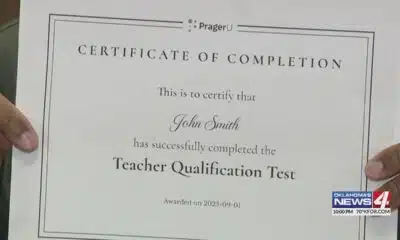News from the South - Arkansas News Feed
Trump threatens to send National Guard troops, immigration agents to Chicago
SUMMARY: The Trump administration is intensifying immigration enforcement by deploying agents to Boston and considering sending National Guard troops and immigration agents to Chicago. President Trump warned Chicago of a crackdown, prompting pushback from Illinois Governor JB Pritzker and Senator Tammy Duckworth, who called such actions illegal and authoritarian. The administration plans to use a naval base north of Chicago as a staging area for around 250 federal agents, sparking protests during Mexican Independence Day events. Meanwhile, Homeland Security launched “Patriot 2.0” in Massachusetts targeting criminal illegal aliens. A CBS poll shows 58% of Americans oppose deploying National Guard troops to cities beyond Washington, D.C., with opinions sharply divided along party lines.
President Donald Trump on Saturday amplified his promises to send National Guard troops and immigration agents to Chicago by …
News from the South - Arkansas News Feed
Local police chiefs asking state to decertify former officers
SUMMARY: This week, local police chiefs from Bentonville and Van Buren are requesting the state Commission on Law Enforcement Standards and Training to decertify former officers. Van Buren Chief seeks decertification of Jason Matthew Scites, arrested for felony internet stalking of a child and attempting sex with a minor; Scites pleaded not guilty. Bentonville Chief requests decertification of Corporal Dustin Epperly, who admitted to shooting geese within city limits, resulting in his firing and a misdemeanor citation. Another Bentonville officer, Henry Brockmeyer, was fired for sexting while on duty; he does not plan to contest his termination. The commission will review these cases in Little Rock.
Local police chiefs asking state to decertify former officers
Subscribe to 40/29 on YouTube now for more: http://bit.ly/PTElbK
Get more Northwest Arkansas news: http://www.4029tv.com
Like us: http://facebook.com/4029news
Follow us: http://twitter.com/4029news
Instagram: https://www.instagram.com/4029news/
News from the South - Arkansas News Feed
Arkansas’s morning headlines | Sept. 5, 2025
SUMMARY: Arkansas faces isolated storms early Saturday morning, potentially disrupting tailgating before clearing by noon with cooler, drier air for afternoon football games. Unemployment in Arkansas holds steady at 3.7%, with fewer new jobless claims reported. Nationally, trust in government data is questioned after President Trump fired a top Bureau of Labor Statistics official ahead of the jobs report release. Health Secretary Robert F. Kennedy Jr. faces criticism over vaccine skepticism but retains presidential support. Locally, Bryant police seek a hit-and-run suspect, and a man is charged with murder in Hampton. A rare black bear attack victim is hospitalized, and a new ALS clinic opened in Northwest Arkansas.
Karen Fuller delivers your morning headlines for Sept. 5, 2025 including the latest on preparations for the Arkansas v. Arkansas State football game.
News from the South - Arkansas News Feed
Changes at NIH give political appointees greater power to fund or block research
by Arthur Allen, KFF Health News, Arkansas Advocate
September 4, 2025
The Trump administration has given notice that political appointees, rather than scientists, will ultimately decide who gets grant money from the world’s largest biomedical research funder — the federal government’s National Institutes of Health.
In an Aug. 7 executive order, President Donald Trump announced that political officers would have the power to summarily cancel any federal grant, including for scientific work, that is not “consistent with agency priorities.” Senior officials should not “routinely defer” to recommendations from peer reviewers, who have provided the backbone of federal science funding for eight decades.
NIH Director Jay Bhattacharya reinforced the message in an Aug. 15 internal memorandum stating that political priorities may override the scoring system provided by outside experts appointed to hundreds of review panels.
“While the score and critiques an application receives in peer review are important factors in determining the scientific merit of a proposal,” his memo stated, NIH institutes and centers should not rely on the scientific merit rankings “in developing their final pay plans.”
Like ongoing conflicts at the Centers for Disease Control and Prevention and the Federal Reserve, NIH scientists told KFF Health News, the disruption of the peer review process represents an attack on agency expertise that the country has relied on for decades.
Although the priorities of top agency staffers have always influenced some NIH funding, those people were nearly always career scientists in the past. By downgrading its peer review process, the NIH could allow political appointees who now occupy key positions to stop grants that typically would be funded, and to fund grants they prefer that don’t necessarily meet rigorous scientific standards, a dozen current and former NIH officials told KFF Health News.
Bhattacharya’s guidelines “open the door to the politicization of NIH research,” said Jenna Norton, a program officer in the National Institute of Diabetes and Digestive and Kidney Diseases.
“Peer review is fundamental and makes sure we’re doing the best science,” she said. “If you’re going to ignore that, the political appointee gets to make the final call.”
NIH spokesperson Amanda Fine said that peer review would continue to be the cornerstone of the NIH’s funding decisions but that funding would become less dependent on reviewers’ rankings of grant proposals.
This will “ensure consistent, transparent, and strategic funding decisions that align with the agency’s mission, maximize public health impact, and responsibly steward taxpayer dollars,” she said. Trump’s executive order said peer reviews would be “advisory” only.
Grants to scientists at universities and other research centers make up about 80% of the NIH’s $48 billion budget, with the rest funding internal NIH research. Since 1946, the NIH has doled out funds based mainly on merits established by a scientific review process that ranks each proposal based on innovation, importance and feasibility.
The peer review process, in which grant proposals scoring above a certain percentile generally receive funding, has always had its critics. Many a Nobel Prize speech has described failures by reviewers to recognize work that would end up leading to pathfinding discoveries, said Carrie Wolinetz, a former NIH chief of staff.
About half of the NIH’s 27 centers and institutes provide leeway to raise or drop grants on the priority list because of factors like institute-wide research goals, Fine said. But these exceptions apply to fewer than 5% of grants, according to Richard Nakamura, who led the NIH’s Center for Scientific Review from 2011 to 2018.
Nakamura’s successor, Noni Byrnes, retired last week after overseeing changes aimed at reducing one frequent target of peer review critics: the awarding of multiple grants to well-placed scientists from top-tier universities.
The Bhattacharya document “itself is not so disturbing in the light of usual practice,” said Harold Varmus, who led the NIH under President Bill Clinton and was the chief of the National Cancer Institute under Barack Obama. “What is disturbing is what it might mean in the context of the current administration.”
The expansion of the Trump administration’s political power at the NIH comes as it has strangled the release of thousands of grants with sometimes ambiguous policy statements and new layers of bureaucracy, including requirements that both the White House and the NIH director clear all new funding opportunities.
Career scientists, who have long run the NIH, have in some instances been replaced by political appointees playing critical roles in scientific decisions, staff scientists say.
New political appointees under Bhattacharya include chief of staff Seana Cranston, a former aide to conservative Rep. Thomas Massie (R-Ky.), and former Department of Government Efficiency manager James McElroy, Cranston’s deputy. The position of chief operations officer was created and filled by Eric Schnabel, a political appointee — since fired — who previously had been in charge of business development for a company that sold fitness programs.
Bhattacharya’s deputy, meanwhile, is Matthew Memoli, an infectious disease scientist who emerged as a sharp critic of covid-19 vaccine mandates. The Department of Health and Human Services stunned vaccine experts in May when it awarded Memoli and colleagues a $500 million grant to develop an influenza vaccine using older technology, with no explanation other than a superlative-filled news release.
The mood at the agency is morbid, said Sylvia Chou, a program officer at the National Cancer Institute. While a minority of workers speak out in protest through documents like the “Bethesda Declaration,” others keep their heads down and their mouths shut.
Most grants must undergo new levels of review by senior NIH employees and the White House, program officers say. Staff members painstakingly police all grant applications for language — such as “diversity” or “climate change” — that might trigger scrutiny by higher-ups, according to four program officers, two of whom KFF Health News agreed not to name because they feared retaliation.
“Bhattacharya has been saying that program officers are making up banned-words lists,” Norton said. “It’s true, we haven’t gotten a list from him saying, ‘Don’t use these words.’ But we do notice that when a grant says ‘health equity,’ it gets terminated.”
“We review them and screen them for all these words as we’re supposedly not doing — but we are doing,” said a program officer who has been at the NIH for six years. “After we approve them, they go to the grant management office and sit there. Then they send them back and say, ‘What about this word?’” This leads to self-censorship, the officer said.
The officer cited a recent proposal involving the effects of hotter weather on kidney disease. It contained the phrase “climate change” as background information, but “I had them remove it,” the officer said. “It’s a level of absurdity, but I wanted to avoid more delays.”
The peer review process itself is “starting to break down” because highly scored grants haven’t been funded for sometimes obscure reasons, Chou said.
The NIH picks hundreds of deeply experienced external scientists to serve on its review panels. While screened to avoid conflicts of interest, many reviewers are themselves NIH grant recipients. They accept pay of about $200 for 100 hours of work as a kind of social contract with the NIH, said Mollie Manier, a scientist at the Center for Scientific Review.
“We’re finding that people are more likely to decline to serve on review panels because their own grants are frozen, or out of protest at what’s happening at NIH,” Manier said.
Another review officer described approaching a Brown University scientist with a request to serve on a panel recently: “They said normally they would do it, but they’ve lost three grants and need to figure out how to keep their lab running.”
As grants crawl through the system, “reviewers are starting to feel they aren’t being convened for anything real,” Manier said. “If the government cancels your grant for no good reason, you can’t expect a good-faith effort anymore.”
“It’s death by a thousand paper cuts, anything they can do to gum up payments, to gum up the decision-making, to wrest control of grant decisions from the career scientists,” said Elizabeth Ginexi, an NIH program officer for 22 years who took early retirement in April.
Fine, the NIH spokesperson, said the agency had “no evidence that recruiting peer reviewers has become more difficult than in the past.”
The administration’s skepticism of peer review feeds doubts NIH scientists already had because of what they saw as irrational villainizing of mRNA vaccines and other matters — including Memoli’s vaccine award.
Although in-house NIH research isn’t subject to the same review process as external grants, Memoli’s grant left officials aghast. “I’m not aware of a process that awards $500 million for a project using antiquated technology to develop vaccines,” one seasoned reviewer said.
Trump’s executive order says the grant review process “undermines the interests of American taxpayers,” leaving many good proposals unfunded while supporting “too much unfocused research of marginal social utility.”
“The opposite is true,” the seasoned reviewer said. “We make sure taxpayer money goes to the most high-impact research.”
“Alignment” is a word the Trump administration frequently uses to explain why an official got fired or research was rejected. Chou finds it appalling.
“The Chinese Communists call it ‘harmonization,’” she said, and now her colleagues speak routinely about grants that are “clean” because they’ve “gone through alignment.”
“We’re saying this in plain English,” she said. “Not Russian, not Beijing Chinese.”
KFF Health News is a national newsroom that produces in-depth journalism about health issues and is one of the core operating programs at KFF—an independent source of health policy research, polling, and journalism. Learn more about KFF.
This article first appeared on KFF Health News and is republished here under a Creative Commons Attribution-NoDerivatives 4.0 International License.
Arkansas Advocate is part of States Newsroom, a nonprofit news network supported by grants and a coalition of donors as a 501c(3) public charity. Arkansas Advocate maintains editorial independence. Contact Editor Sonny Albarado for questions: info@arkansasadvocate.com.
The post Changes at NIH give political appointees greater power to fund or block research appeared first on arkansasadvocate.com
Note: The following A.I. based commentary is not part of the original article, reproduced above, but is offered in the hopes that it will promote greater media literacy and critical thinking, by making any potential bias more visible to the reader –Staff Editor.
Political Bias Rating: Center-Left
This content critically examines the Trump administration’s policies on NIH grant funding, highlighting concerns about increased political interference in scientific decision-making. The perspective emphasizes the value of peer review and the expertise of career scientists, framing political appointees’ influence as undermining scientific integrity. The critique aligns with views commonly expressed by center-left sources that prioritize scientific norms and caution against politicization of federal agencies, while maintaining a focus on factual reporting rather than overt partisan rhetoric.
-
Mississippi Today6 days ago
Trump proposed getting rid of FEMA, but his review council seems focused on reforming the agency
-
News from the South - Tennessee News Feed6 days ago
Tennessee ranks near the top for ICE arrests
-
News from the South - Missouri News Feed7 days ago
Missouri joins dozens of states in eliminating ‘luxury’ tax on diapers, period products
-
News from the South - Texas News Feed3 days ago
Texas high school football scores for Thursday, Sept. 4
-
News from the South - Arkansas News Feed6 days ago
Every fall there’s a government shutdown warning. This time it could happen.
-
Mississippi Today5 days ago
Brandon residents want answers, guarantees about data center
-
News from the South - Oklahoma News Feed6 days ago
Test taker finds it's impossible to fail 'woke' teacher assessment
-
Mississippi News Video7 days ago
WTOK Weather – Zack Rogers 8/30/25









































